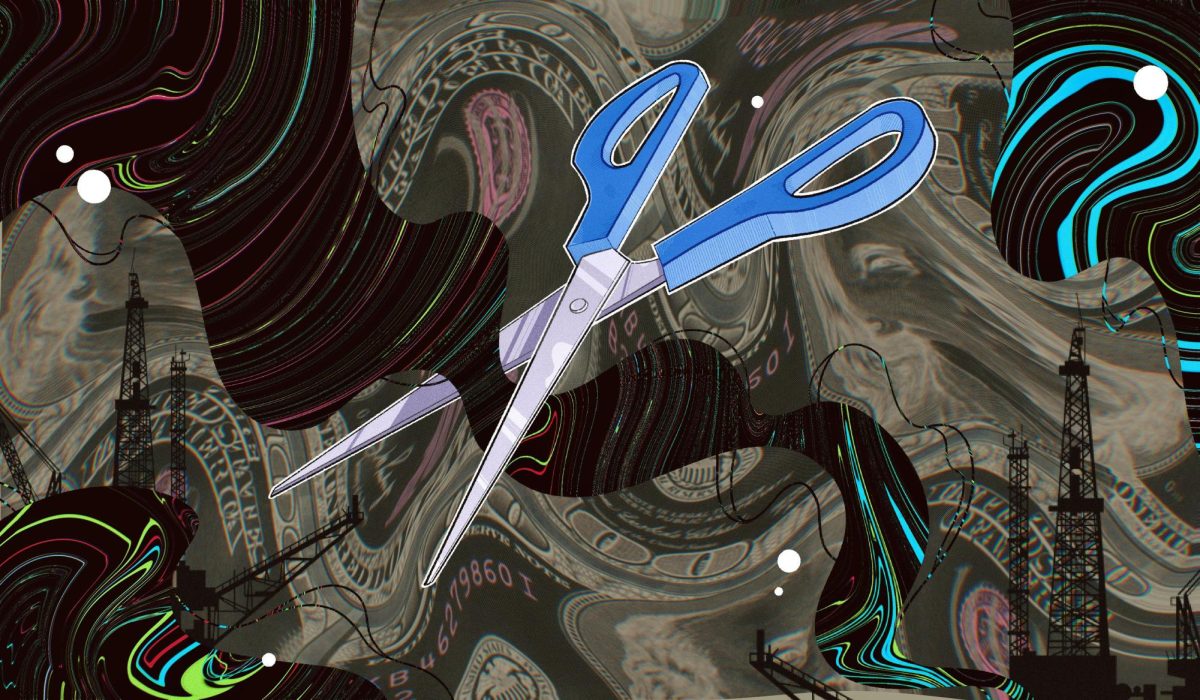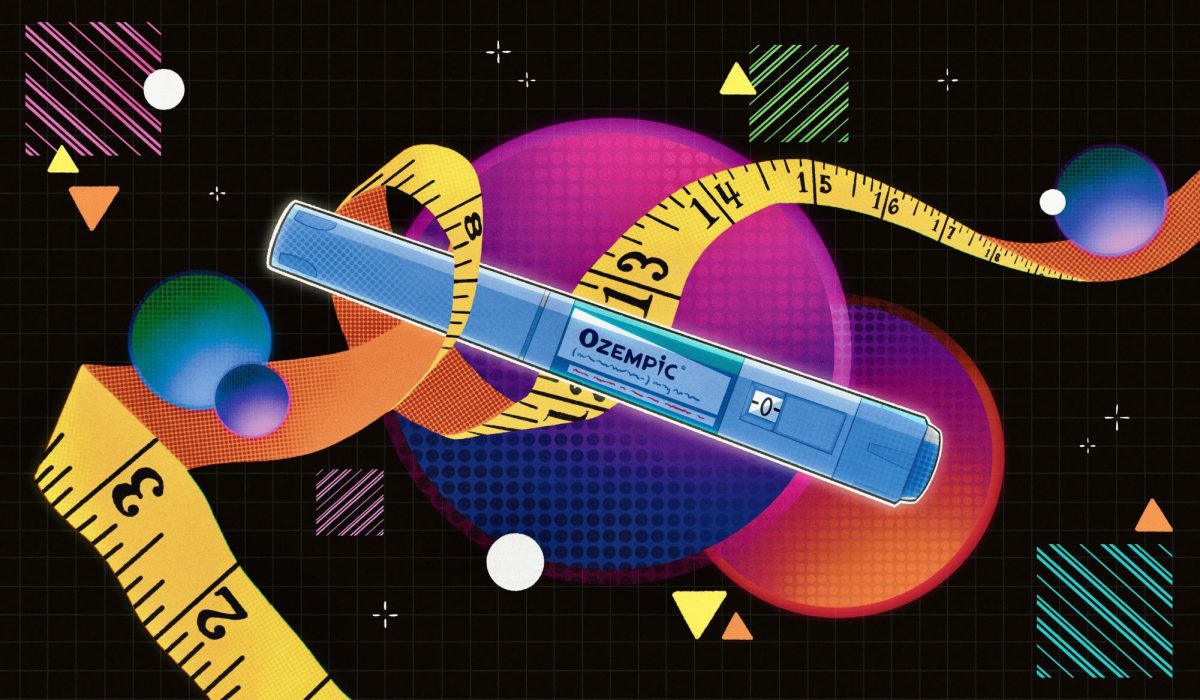Whose image pops into your mind when you envision shiny gold front teeth, baggy clothes and marijuana? Who else — the typical black man.
Not only does this black man sport the attire that fits the description of all other black men in this country, but he also speaks the “”black”” dialect — slang-peppered Ebonics.
He holds the typical black occupation, or rather lack thereof, and he has an acrimonious attitude, hell-bent on putting “”Whitey”” in his place.
To accompany his other attributes deemed necessary to legitimize his status as truly black, this figure is lumped into the same category as all the other prison-bound, shiftless, misogynistic black men just like him.
Are you offended yet? Good, because so am I.
Last Tuesday night, I reluctantly attended the free screening of Universal Studios’ soon-to-be-released motion picture “”How High.””
The film turned my stomach as I sat squirming in my seat. Even more disturbing to me than the stereotypical depiction of my fellow African-Americans on the screen was the amount of laughter bubbling up from some 500 students in Mandeville Auditorium. They laughed through the scenes featuring African-Americans evading employment or having no ambition. They laughed through the scenes featuring African-American men slapping two unsuspecting women. Even when blacks were shown as the thieves that they are expected to be by society, the audience laughed.
Something is wrong with this picture. I am disgusted with the generalized Hollywood portrayal of black culture, and I am even more upset by the level of acceptance this denigrating representation meets amongst the public. I attended the free screening not for recreation, but specifically to address this issue of immeasurable importance.
Tinseltown would have all Americans believe that African-Americans are entertaining by nature, and that black and drugs, black and sex, or black and ignorance are always mutually inclusive. “”How High”” was a production that trumpeted these themes consistently, so for those people who attended and had a good chuckle, and for those moviegoers who plan on shelling out $8 when it is released in December, let me illustrate how low the movie really is.
Every time I see the ubiquitous marijuana leaf adorning a T-shirt or baseball cap, I wince. I am painfully aware that the marketers of those items are specifically addressing youth, hip-hop culture and blacks. Countless numbers of black entertainers don the emblem as though it were the insignia of the African-American lifestyle. Weed was not a staple in my household when I was a young child, nor was drug usage a tacitly understood practice.
Where are the images of African-Americans who do not use marijuana on a regular basis? “”The Cosby Show?”” Maybe “”The Fresh Prince of Bel Air?”” Keep going — or can you?
Every black artist’s video on MTV’s “”Total Request Live”” promotes the stereotype that black men have no greater ambition than to blaze up each and every day of the year. While these people certainly exist, they are in no way the majority, but with movies such as “”How High,”” Americans are hard-pressed to form alternate conclusions.
To the black man, women are sexual objects: pawns to be played like a game of chess. And of course, black women do not mind being objectified and mistreated by being called hoes and bitches as if they were not given any other name at birth. This is all true and quite funny, right?
If you are shaking your head in disagreement, then you must not have been in Mandeville Auditorium last Tuesday night, because it seemed as if almost everyone in the audience thought these were extremely humorous assertions.
However, I sat back with my jaw open at the film’s message, which can be summated in one statement: All black men and women have an insatiable sexual appetite and they will go to any means, endure any treatment and surmount any obstacle to get sex. Black women in clingy pants made of gold lame strutted across the screen throughout “”How High,”” perpetuating every stereotype concerning the exotification of women of color that we have so passionately been trying to dispel.
The main characters were black men who, despite their perpetually altered state, could single out a sexy woman from hundreds of yards away. Depicting black women as whores and black men as studs is an antiquated assumption that debases the loving and nurturing relationships that the majority of black people engage in.
We do not run panting like dogs in heat after members of the opposite sex, which movies such as “”How To Be a Player”” and “”Booty Call”” would have our society believe. “”How High”” is just another movie that shines a negative light on black people who are struggling to erode damaging stereotypes.
Another prevailing theme in “”How High”” is the disassociation of African-Americans from school. Education is not the enemy to black people — the poverty that hinders their performance in school is. The socially constructed racism that maintains sticky floors and glass ceilings is the enemy as well.
But young black people, when given the tools and the resources to excel, meet the challenges of a good education. They do not disrupt the classroom, smoke their way through exams and run around wreaking mayhem on the educational system, as did the characters in “”How High.”” The two main characters in “”How High”” never gave viewers any indication that it was acceptable to be black and smart simultaneously.
One character refers to a well-spoken black man, saying he was “”black like a polar bear.”” Does articulate speech equal white, and slang and broken English equal black? The popular depiction in Hollywood mistakenly suggests this is true.
We are all at fault every time we laugh at a joke made at the expense of ethnicity. The black actors and entertainers who denigrate their own race for capitalistic gains are accountable. Just because they are of the ethnicity they negatively portray does not justify the practice. The film industry and music executives who produce these movies and videos that strip integrity from black culture are equally responsible.
But the level at which we can effect change is in our own personal entertainment selections. If consumers are not willing to shell out money for movies and videos that are deprecating and generalizing, then material with more positive content will flourish.
I will not refute that there are some blacks who reflect the ignoramuses in “”How High,”” but there are also many other blacks who do not remotely favor the main characters or their lifestyles.
Americans have infinite power as consumers. Until we invest our money away from movies such as “”How High,”” society will suffer.







